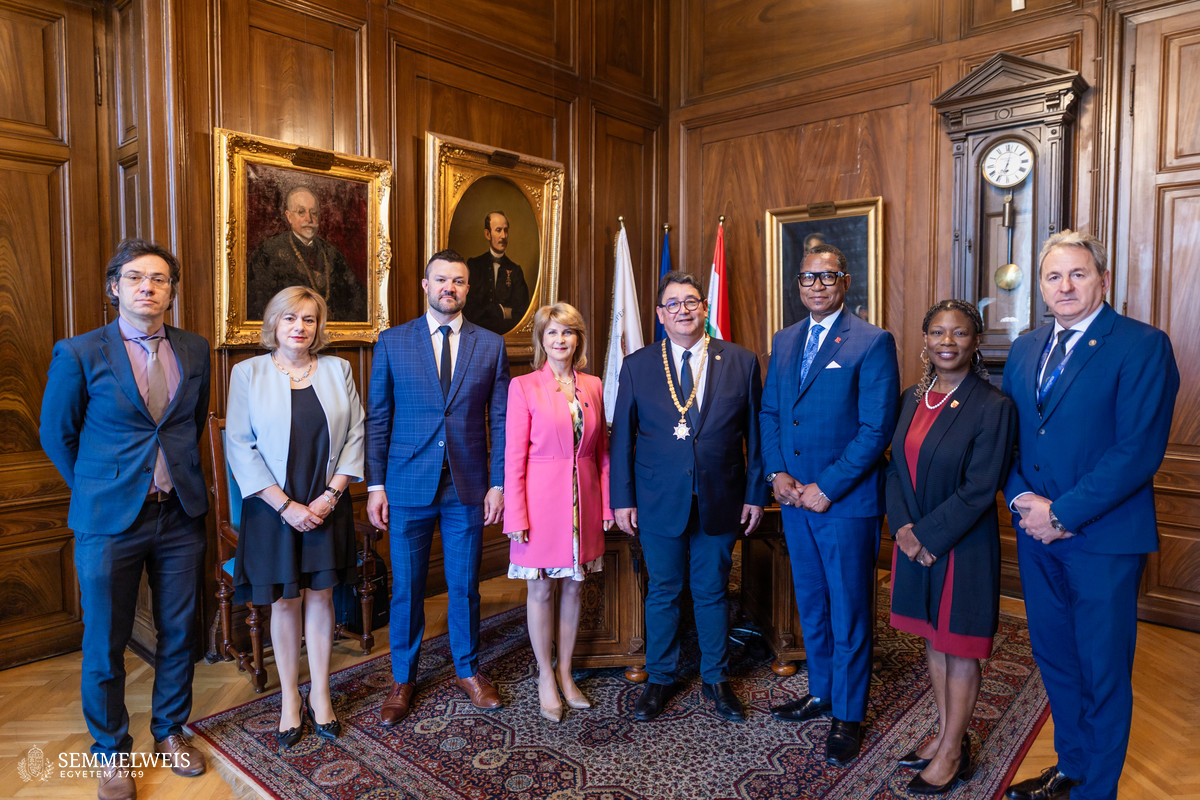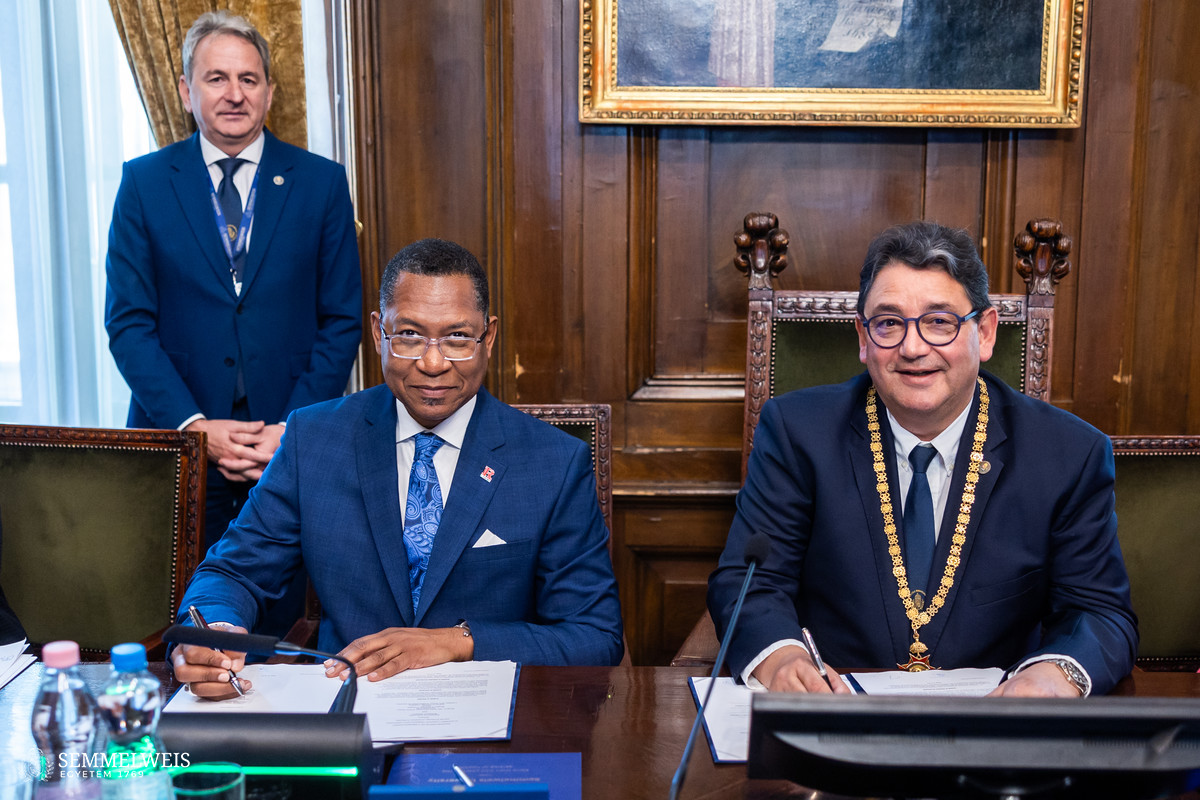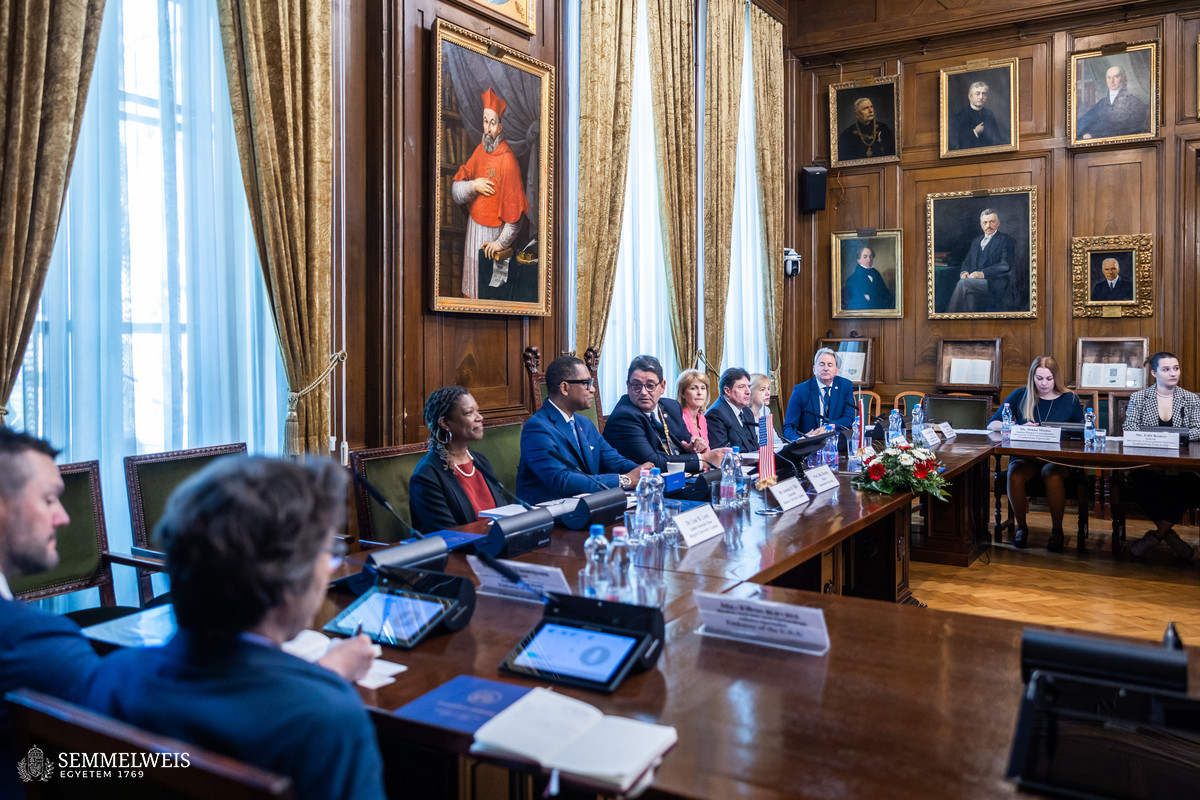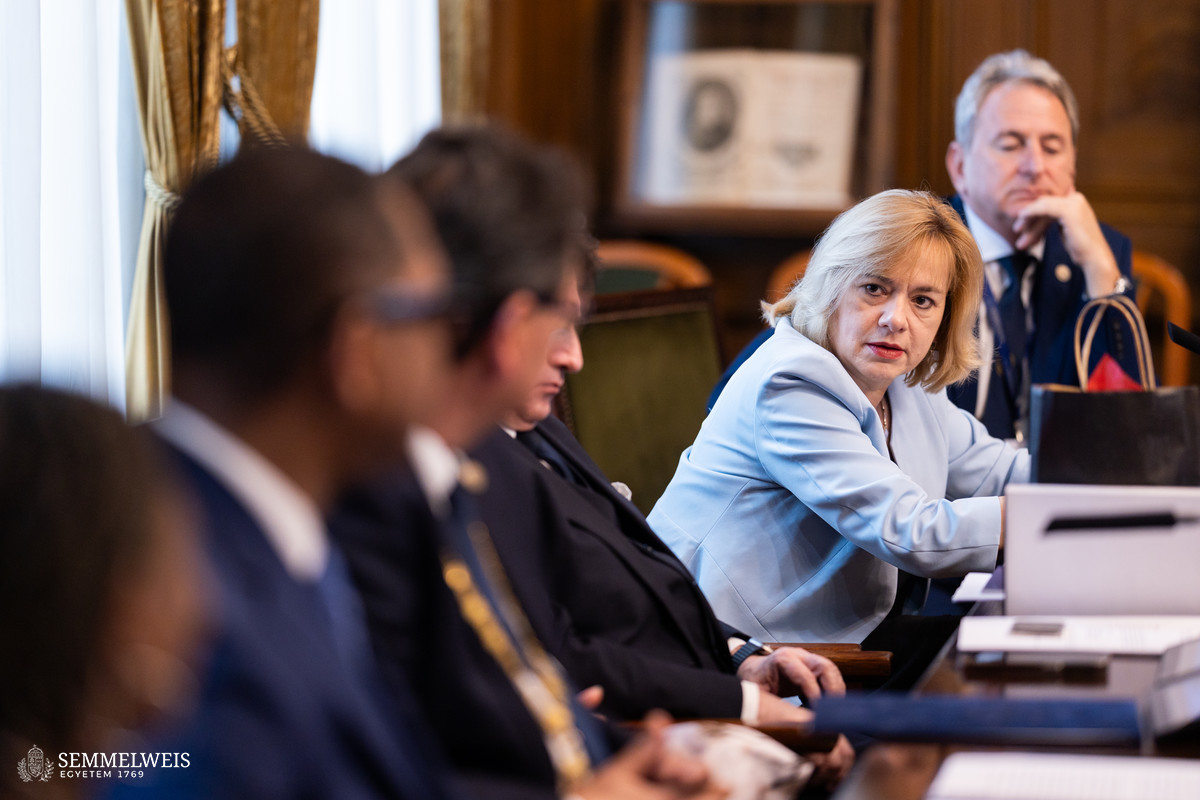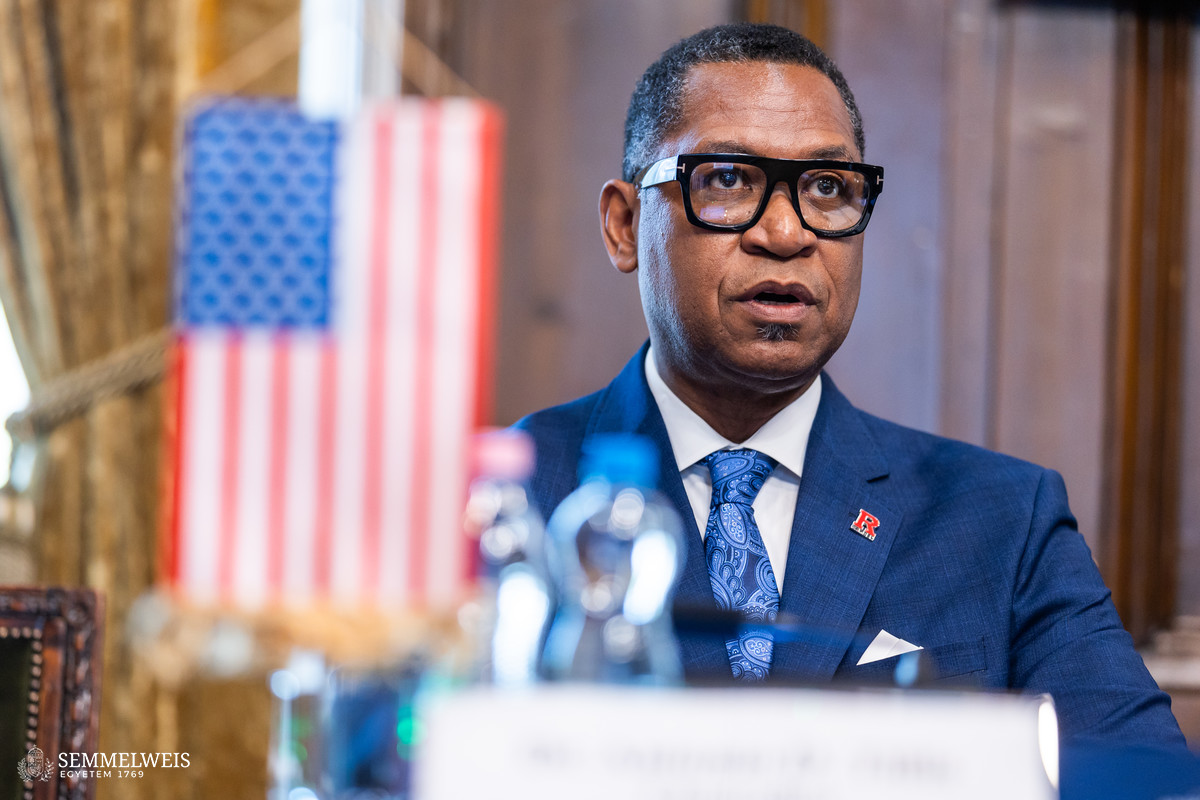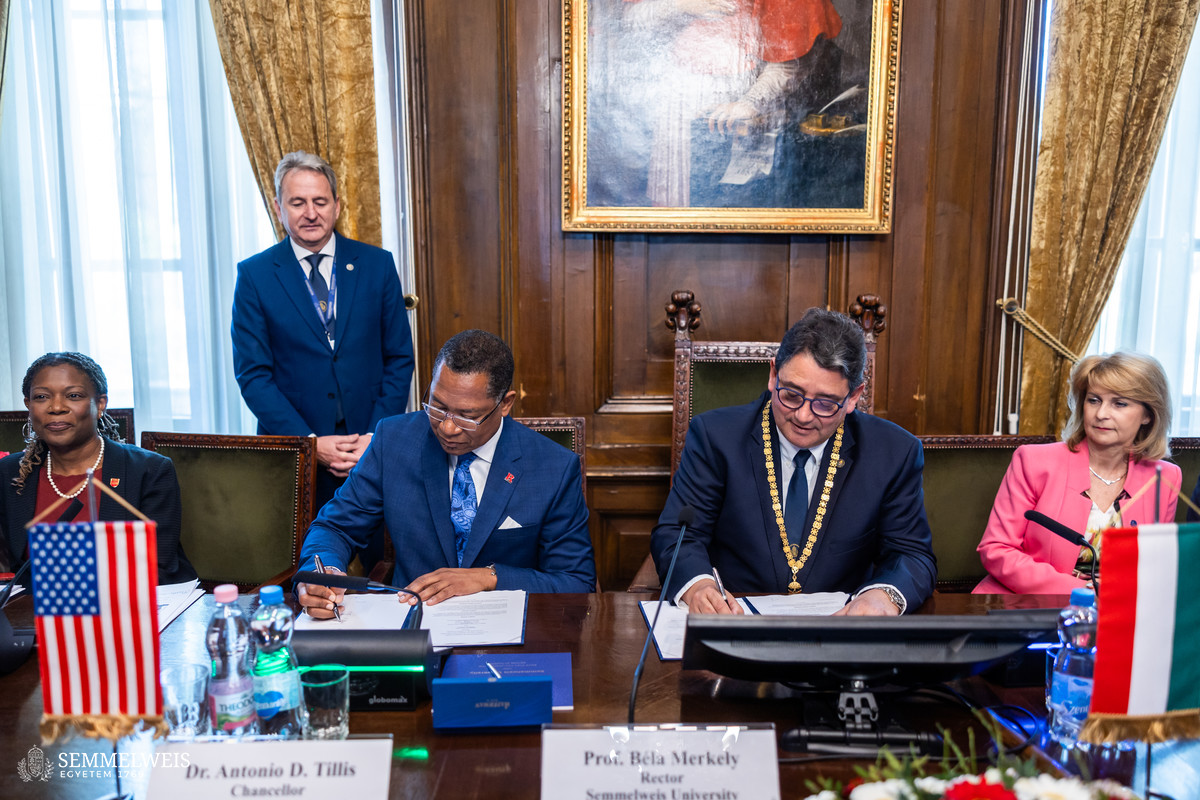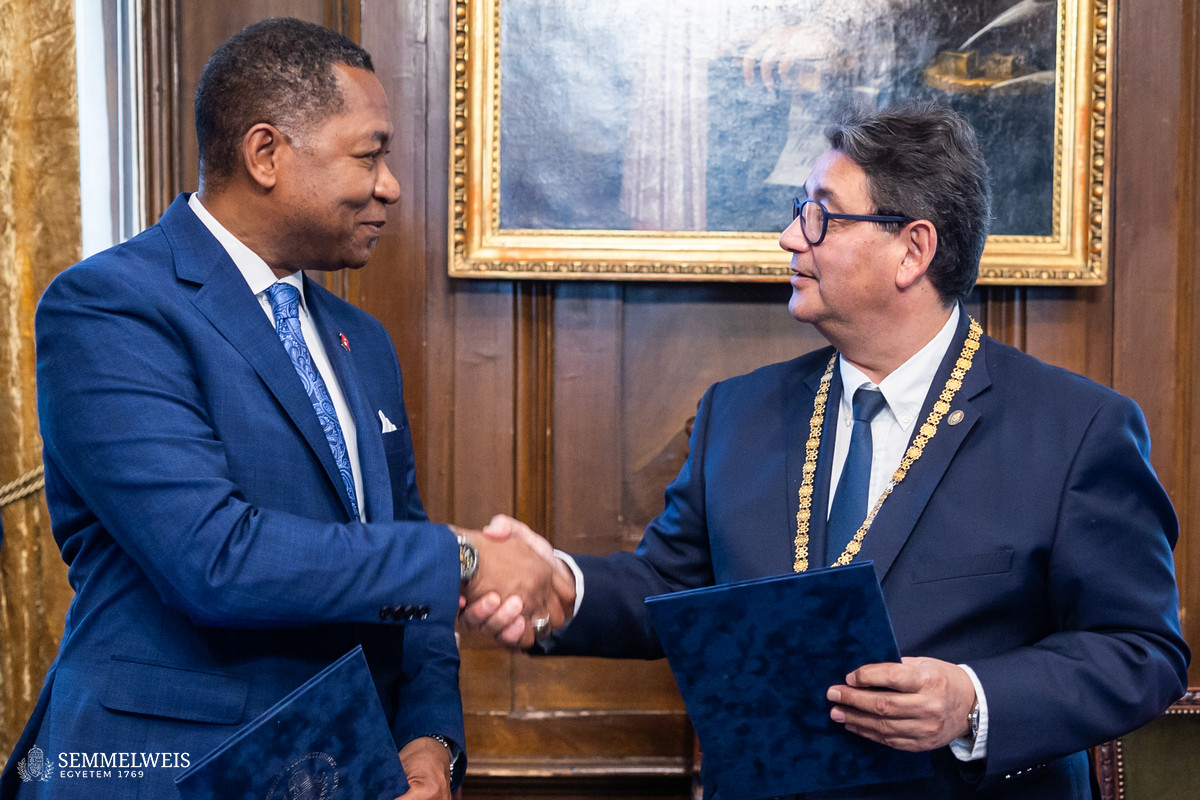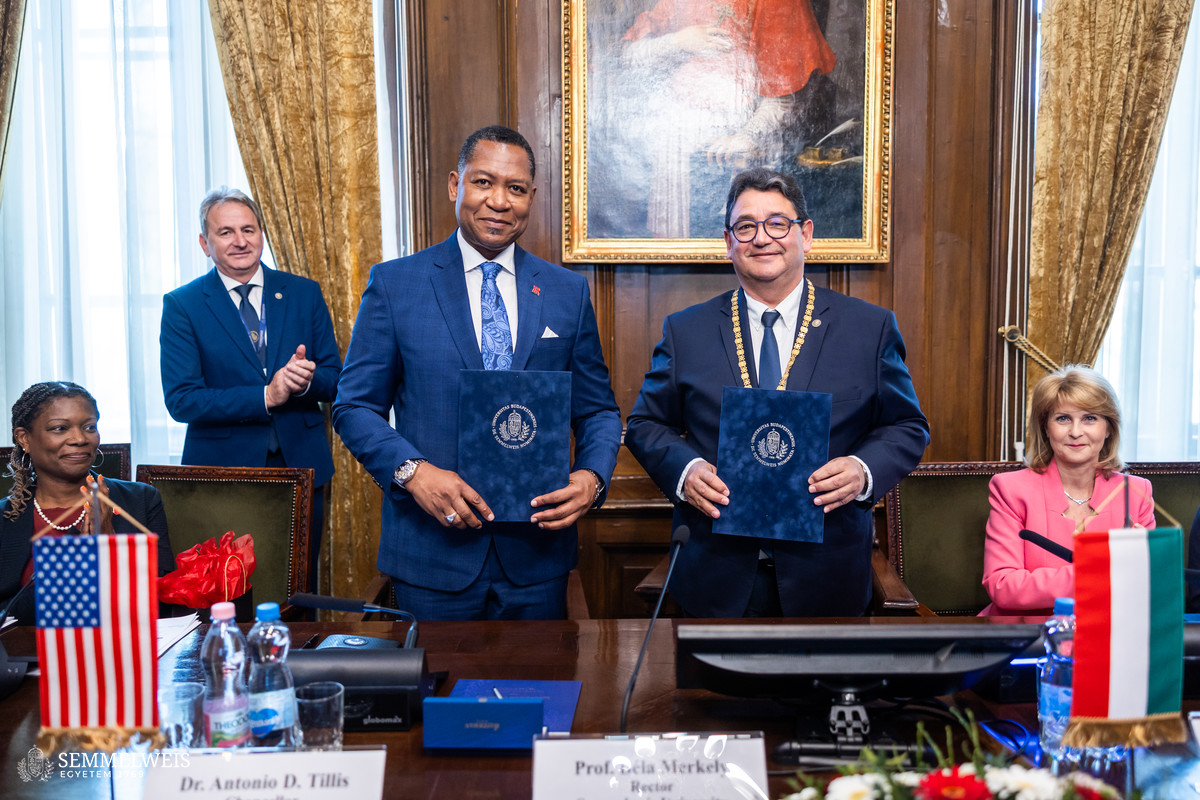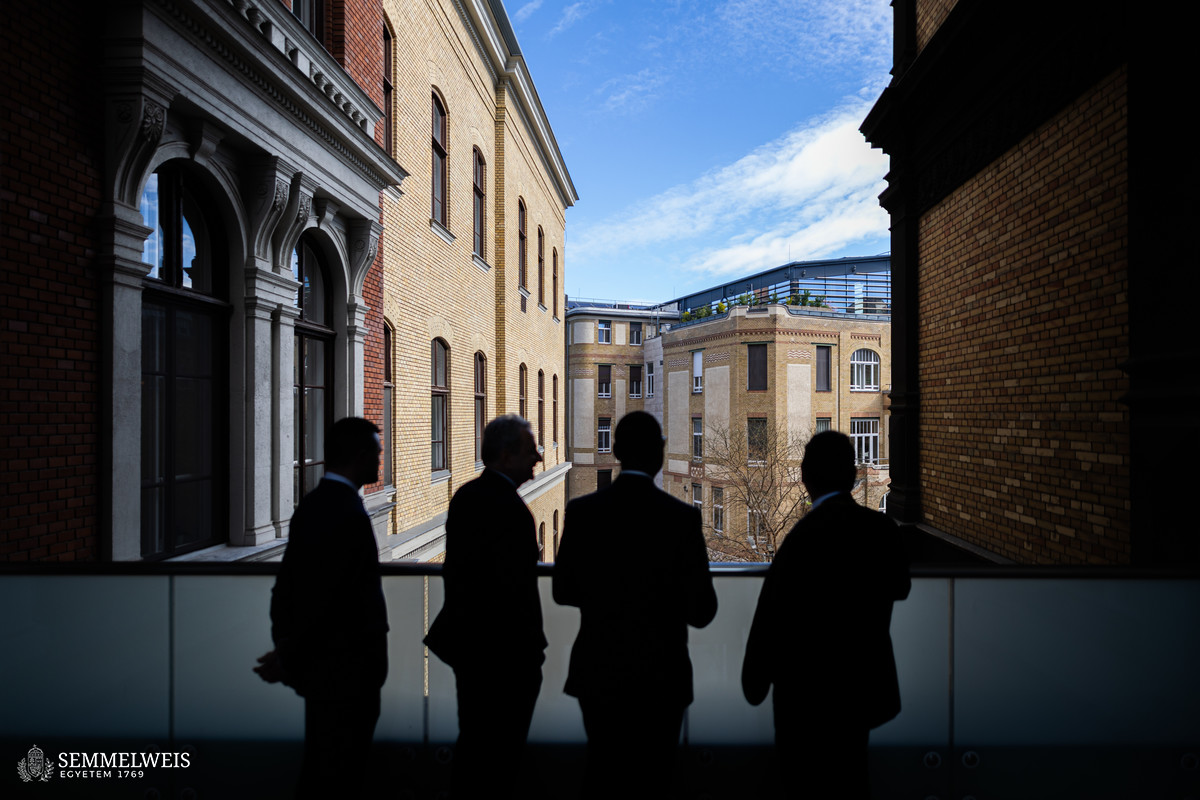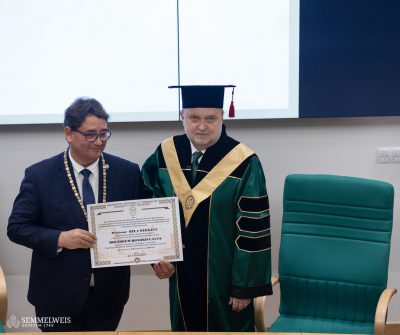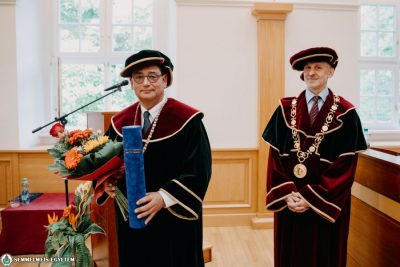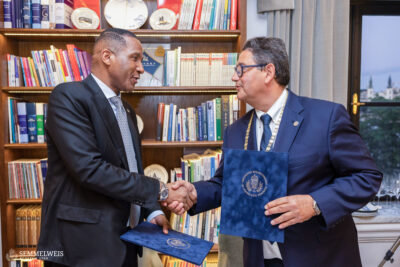Effective for a period of three years, the cooperation aims to exchange faculty, professional staff and post-doctoral students, enhance the development of cooperative efforts in research and scientific publication, and develop curricula. As part of the partnership, the parties may also hold joint training courses, either in person or using distant technology, and provide mutual access to available research equipment and library materials.
After welcoming the participants of the signing ceremony, Rector Dr. Béla Merkely gave a brief presentation on the present and the threefold activity of Semmelweis University, detailing the international mobility programs, the high proportion of international students, the alumni network of the institution and its achievements in international higher education rankings.
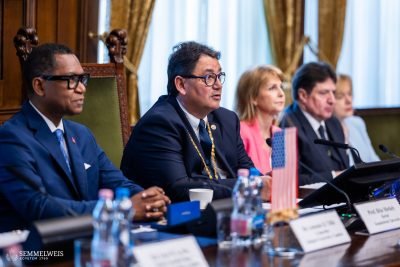 Referring to the university’s extensive international network, the rector pointed out that Semmelweis had signed about 200 cooperation agreements. These are complemented by the decades-old cooperation with Rutgers University and its integrated institutions. Starting in 2003, Semmelweis University’s Faculty of Health Sciences (ETK) worked on a joint project with the then Nazareth College of Rochester in the framework of the Atlantis program. In 2012, ETK signed a cooperation agreement with the University of Medicine and Dentistry of New Jersey, now integrated into Rutgers University. As a token of the close relationship between the two institutions, in 2013 Professor Dr. Marie T. O’Toole was awarded Doctor Honoris Causa in recognition of her efforts in the field of dual-degree nursing education, furthermore Chancellor Dr. Phoebe Haddon also paid an official visit to Semmelweis University in 2015. The faculties of the two institutions regularly visit each other, and the collaboration between the two partners has resulted in nearly 50 joint publications in the fields of biochemistry, the cardiac and cardiovascular system, neurosciences, pharmacology, oncology, biophysics, and cell biology over the past decade. In addition to the present agreement, the future partnership will also be supported by the Pannonia, Fulbright and ACQUIRE programs.
Referring to the university’s extensive international network, the rector pointed out that Semmelweis had signed about 200 cooperation agreements. These are complemented by the decades-old cooperation with Rutgers University and its integrated institutions. Starting in 2003, Semmelweis University’s Faculty of Health Sciences (ETK) worked on a joint project with the then Nazareth College of Rochester in the framework of the Atlantis program. In 2012, ETK signed a cooperation agreement with the University of Medicine and Dentistry of New Jersey, now integrated into Rutgers University. As a token of the close relationship between the two institutions, in 2013 Professor Dr. Marie T. O’Toole was awarded Doctor Honoris Causa in recognition of her efforts in the field of dual-degree nursing education, furthermore Chancellor Dr. Phoebe Haddon also paid an official visit to Semmelweis University in 2015. The faculties of the two institutions regularly visit each other, and the collaboration between the two partners has resulted in nearly 50 joint publications in the fields of biochemistry, the cardiac and cardiovascular system, neurosciences, pharmacology, oncology, biophysics, and cell biology over the past decade. In addition to the present agreement, the future partnership will also be supported by the Pannonia, Fulbright and ACQUIRE programs.
Dr. Antonio D. Tillis, Chancellor of the Camden campus of the public university Rutgers, recalled that the two institutions signing the agreement share almost the same age, as the predecessor of Rutgers was founded in 1766, making it the eighth oldest university in the United States, chartered in the colonial era. As he pointed out, in addition to its broad range of educational and research activities, Rutgers also places a strong emphasis on community engagement. Elevating the existing international partnerships, such as the collaboration with Semmelweis University, is identified as a strategic goal of the near future, he stressed. Dr. Antonio D. Tillis thanked Rector Dr. Béla Merkely and Chancellor Dr. Lívia Pavlik for supporting the agreement; Dr. Marcel Pop, Head of the Directorate of International Relations and his staff for their assistance during the visit; as well as Dr. Gabriella Dörnyei, Dean of ETK, with whom the details of the cooperation were elaborated at the recent Budapest meeting. He said that one of the tangible opportunities of the professional partnership is to offer visiting students access to both artificial intelligence-based simulation, which supports the acquisition of anatomical and physiological knowledge, and other innovative technologies used for educational purposes.
“We are excited to sign the agreement, as the scientific cooperation between our institutions will also deepen the connection between our nations,” he stated.
After the signing ceremony, Rector Dr. Béla Merkely highlighted that the partnership can contribute to addressing the challenges facing medical education and nursing, thus helping to overcome the shortage of skilled professionals and to provide up-to-date training. He concluded by saying:
I am confident that by working together through a transatlantic cooperation, we can develop innovative solutions that have both local and global impact. The renewal of our Memorandum of Understanding serves as a testament to our shared commitment to fostering collaboration and driving positive change. Together, we can continue our journey of discovery, innovation, and excellence that spans borders and transforms lives.
Luke Thompson, Director of the Regional Environment, Science and Technology and Health (ESTH) Hub Office at the U.S. Embassy, also expressed the support of the United States, stressing that the partnership would contribute to deepening both academic and diplomatic ties.
Judit Szabados-Dőtsch
Photos: Bálint Barta – Semmelweis University
